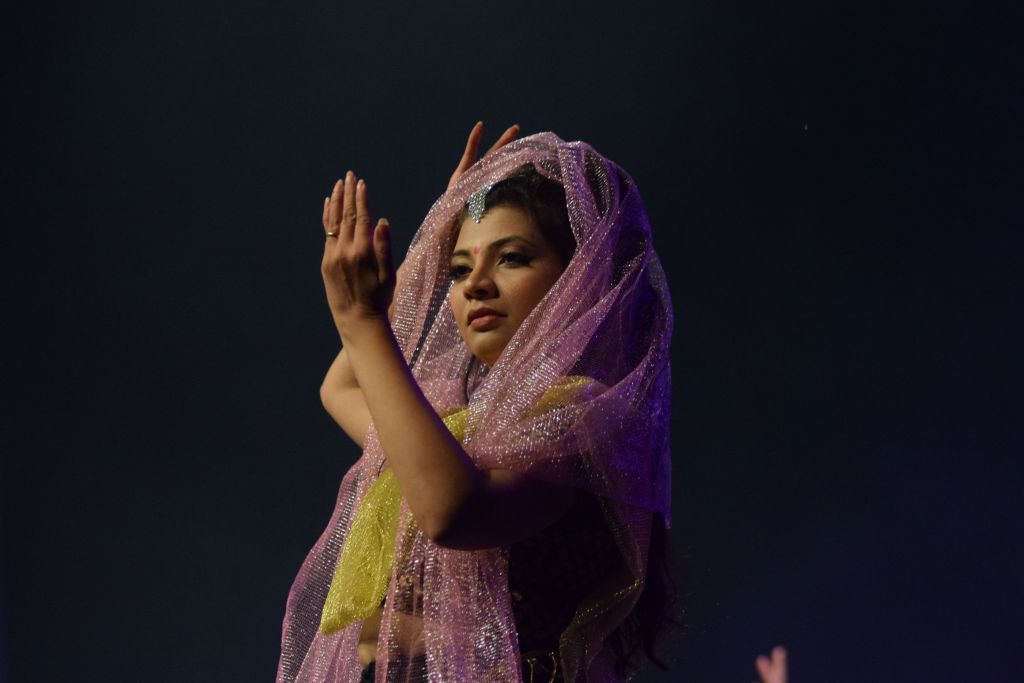
The Indo-Canada Association (ICA) commemorated Diwali in the Algonquin Commons Theatre on Oct. 15. It was a night brightened by singing and dancing, during their annual Diwali Mela festival.
Diwali is a festival of lights that falls on the year’s darkest night with a new moon. Which, is rather poetic, given the meaning of the holiday.
The concept of the holiday was summed up neatly in a speech by Anita Vandenbeld, MP for West-Nepean. “The celebration has existed for over 5,000 years, and yet the message is so clear: the triumph of light over darkness.”
ICA is a non-profit organization that’s existed for over 50 years. It’s their mission is to help maintain Indian heritage and cultural practices among Indo-Canadians as well as bridging cultural gaps between Indo-Canadians and the rest of Canada.
Diwali is observed by Hindus, Sikhs, Jains and Buddhists, throughout many countries in Southern-Asia, South-East Asia, and the Caribbean. The meaning, significance, and even label of Diwali are different in each religion but the core tenant remains the same: the victory of good over evil.
Flowers decorated parts of the stage and small electric diya oil lamps lined the edge of the proscenium to stand in for actual flames.
The show began with the traditional Hindu hymn, Shri Ganesh Vandana, which is a staple of Hindu religious events.
Ganesh, or Ganesha, is a Hindu god prayed to for prosperity and wealth of knowledge. It’s regular practice to recite the hymn for new beginnings such as the birth of a baby or, in this case, at the beginning of an event.
There was singing and dancing by performers of all ages; from as young as five years old to middle-aged men and women.
Though the performances that truly stole the show were a series of dances by the studio Shefali’s Bollywood Dance Pro.
The company teaches a variety of dance, such as hip-hop and bhangra, but at the Diwali Mela, their goal was to promote awareness of the oppression of women in India.
Their performance began with young girls dancing. Behind them was a line of dancers hiding behind saddened Greek theatre masks, who’d occasionally grab the girls and swing them about. As the performance went on, the theme escalated to a ferocious number involving the leader of dance and the eponymous studio, Shefali Adhikari, striking the air with a trishul, a South-Asian trident.
Finally, a dance depicting Adhikari being harassed by a man was the peak of the performance, and hammering home their message of women’s oppression in India and abroad.
At the end, dancers raised a banner stating “Save a girl and save the world,” while an instrumental version of Jana Gana Mana, the national anthem of India, played in the background; the audience immediately rising from their feet.
Adhikari ended her group’s part in the show with a small speech.
“Women have no problem speaking up. They have a problem being heard. This voice belongs to you, your mother, your sister, your girlfriend, your wife. Women were not born to vanish in the night.”
When all the performances were over, the night ended with short speeches by various ICA members, including the president, Umesh Kumar, who wished everyone a prosperous and happy Diwali.
Students Muskan Bhatia and Rishi Gupta were the masters of ceremony for the night. Gupta saw the event as a great success. This was his first time hosting an event.
“Honestly, I was not nervous at all while MC’ing the event,” said Gupta. I feel that because I was MC’ing with somebody else the attention wasn’t always on me, which really lessens the stress.”
Gupta says the tone of Diwali is not all that different from other Indian celebration, only that it’s “every celebration combined and dialed up to 11.”
“The nights are brighter than the days and the firecrackers bring joy to every person no matter how old or how young. Diwali is about celebrating the light in our lives and sharing your happiness with others.”
This the third year the ICA held their Diwali Mela at Algonquin. Diwali falls on Oct. 30 this year.


